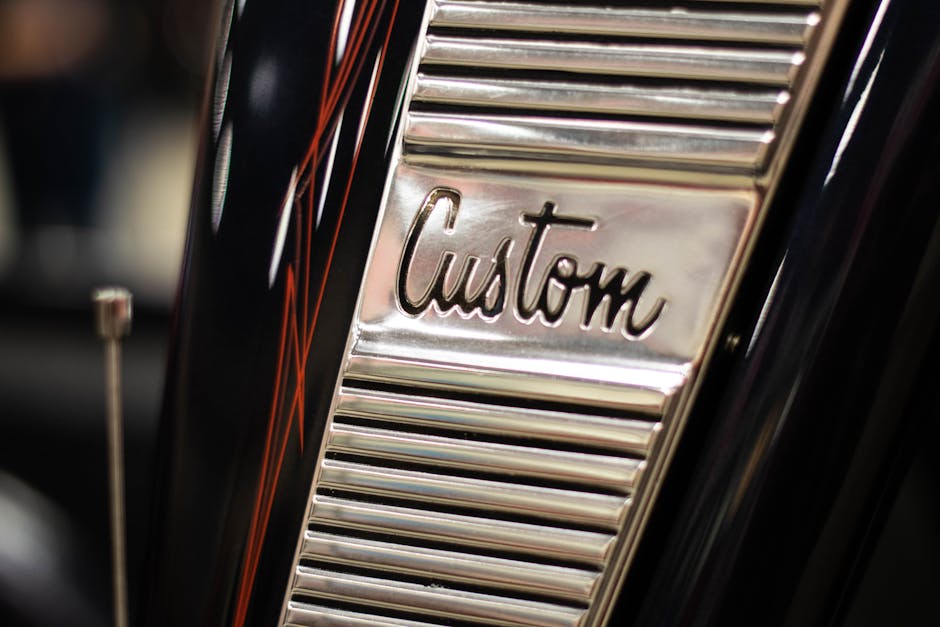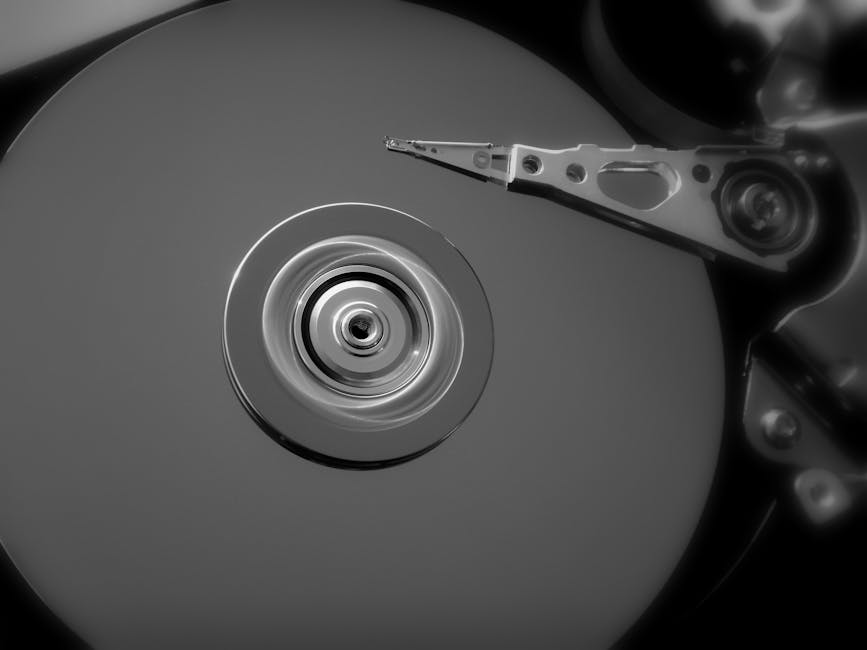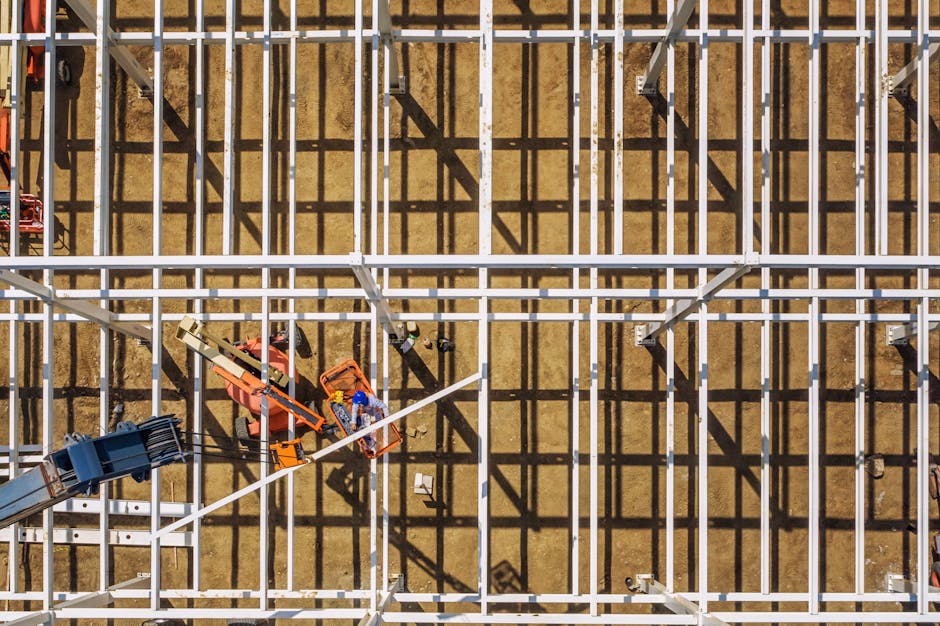Custom Metal Fabrication: Revolutionising Modern Engineering in the UK
Custom metal fabrication has emerged as a pivotal force revolutionising modern engineering in the UK. This intricate process of crafting bespoke metal components has significantly impacted various industries, from automotive to aerospace, by offering tailored solutions that traditional manufacturing methods cannot match.
Innovations in technology and processes have elevated the precision and efficiency of custom metal fabrication, enabling the production of complex and intricately designed components. This transformation has resulted in heightened efficiency and cost-effectiveness, driving a paradigm shift in the manufacturing landscape.
The future of engineering in the UK is undeniably intertwined with the evolution of custom metal fabrication, promising unparallelled advancements in bespoke component manufacturing and engineering excellence.
Key Takeaways
- Evolution and innovations in custom metal fabrication have been driven by the increasing demand for customisation and the development of advanced technologies and processes.
- Key industries benefiting from custom metal fabrication include the automotive, aerospace, energy, and construction sectors, which require specialised and tailored components for improved performance and functionality.
- Cutting-edge fabrication methods such as laser cutting, 3D printing, precision machining, and advanced welding techniques have enabled the production of intricate designs, rapid prototyping, highly accurate parts, and stronger joins.
- Custom metal components offer advantages such as cost benefits, material customisation, improved functionality, unique designs, and quality assurance, leading to increased efficiency and cost savings in production processes.
The Evolution of Custom Metal Fabrication

In recent decades, custom metal fabrication has undergone significant evolution, shaping the landscape of modern engineering in the UK.
The industrial revolution marked the beginning of this transformation, as it sparked the widespread use of machinery and the mass production of metal components.
However, it was the increasing demand for customisation that drove the evolution of metal fabrication techniques.
This need for bespoke metalwork led to a surge in innovation within the industry, pushing manufacturers to develop advanced technologies and processes to meet diverse requirements.
Metalwork innovation has played a pivotal role in this evolution, with the introduction of computer-aided design (CAD) and computer-aided manufacturing (CAM) systems revolutionising the way metal components are designed and produced.
These advancements have not only enhanced precision and efficiency but have also expanded the possibilities for intricate and complex designs.
Moreover, the evolution of custom metal fabrication has been fuelled by the integration of automation and robotics, further streamlining the production process and ensuring consistent quality.
Key Industries Benefiting From Custom Metal Fabrication

The integration of custom metal fabrication techniques has significantly transformed key industries, propelling them towards greater efficiency and adaptability in the modern engineering landscape of the UK.
Custom metal fabrication has revolutionised various industries, including:
-
Automotive Industry: Custom metal fabrication has enabled the production of lightweight and durable components, contributing to enhanced vehicle performance and fuel efficiency.
-
Aerospace Sector: The aerospace industry benefits from custom metal fabrication through the creation of complex and precision-engineered parts, leading to improved aircraft functionality and safety.
-
Energy Sector: Custom metal fabrication plays a vital role in the energy sector by providing specialised components for power generation, transmission, and renewable energy systems, contributing to increased reliability and performance.
-
Construction Industry: Custom metal fabrication offers tailored solutions for construction projects, facilitating the creation of structural elements with precise specifications, leading to enhanced structural integrity and durability.
Custom metal fabrication continues to drive innovation and advancement across these industries, promoting the development of high-quality products and systems that meet the evolving demands of modern engineering in the UK.
Innovations in Technology and Processes

The evolution of custom metal fabrication in the UK has been driven by advanced manufacturing techniques and cutting-edge fabrication methods. These innovations have significantly improved the efficiency, precision, and quality of metal components produced.
As technology continues to advance, custom metal fabrication is poised to continue revolutionising modern engineering practises in the UK.
Advanced Manufacturing Techniques
With the advent of advanced manufacturing techniques, the metal fabrication industry in the UK has witnessed a transformative shift towards innovative technology and processes. This shift has been driven by several key advancements, including:
- Additive manufacturing, which enables the production of complex metal components with reduced material waste.
- Robotic automation, leading to increased precision and efficiency in metal fabrication processes.
- 3D printing, offering new possibilities for creating intricate and customised metal parts.
- Laser cutting, allowing for high-precision cutting of metal sheets with minimal heat-affected zones.
- Advanced CAD/CAM software, facilitating the design and simulation of metal components before fabrication.
These innovations have not only enhanced the capabilities of metal fabrication but also revolutionised the way modern engineering projects are approached and executed in the UK.
Cutting-Edge Fabrication Methods
Amidst the rapid evolution of advanced manufacturing techniques, the metal fabrication industry in the UK continues to embrace cutting-edge methods to enhance precision, efficiency, and customisation. Innovations such as laser cutting and 3D printing have revolutionised the way metal components are fabricated, allowing for intricate designs and rapid prototyping. Additionally, welding techniques have advanced to ensure stronger and more seamless joins, while precision machining technologies enable the production of highly accurate and complex parts. These advancements not only improve the quality of metal components but also streamline the production process, reducing lead times and overall costs. Below is a table highlighting the impact of these cutting-edge methods:
| Cutting-Edge Methods | Impact |
|---|---|
| Laser cutting | Intricate designs |
| 3D printing | Rapid prototyping |
| Precision machining | Highly accurate parts |
These innovations pave the way for the subsequent section, where we delve into the advantages of bespoke metal components.
Advantages of Bespoke Metal Components

Bespoke metal components offer unparallelled precision and customisation, enhancing the efficiency and performance of engineering projects.
The advantages of using bespoke metal components are numerous, including:
-
Cost benefits: Tailored metal components can minimise material wastage and reduce production costs, leading to overall cost savings for engineering projects.
-
Material customisation: Custom metal fabrication allows for the selection of specific materials that best suit the project requirements, ensuring optimal performance and durability.
-
Improved functionality: Tailored metal components are designed to fit seamlessly within the engineering project, resulting in enhanced functionality and performance.
-
Unique designs: Custom metal fabrication enables the creation of unique, intricate designs that may not be achievable with standard off-the-shelf components, adding a distinct competitive advantage.
-
Quality assurance: Each bespoke metal component undergoes rigorous testing and quality control measures to ensure it meets the required standards, guaranteeing reliability and longevity.
Custom Metal Fabrication’s Impact on Efficiency

Custom metal fabrication plays a pivotal role in improving efficiency across various industries. By streamlining production processes, custom metal components can significantly reduce lead times and increase overall productivity.
Additionally, the enhanced structural integrity and design flexibility provided by custom fabrication allow for the creation of more efficient and durable products.
Streamlining Production Processes
As custom metal fabrication continues to evolve, it has significantly impacted the efficiency of production processes in modern engineering in the UK. This impact is evident in several key areas:
-
Improved Workflow: Custom metal fabrication has enabled the design and implementation of more streamlined production processes, reducing bottlenecks and enhancing overall workflow efficiency.
-
Optimising Resources: Through advanced techniques and technologies, custom metal fabrication has allowed for better utilisation of resources, minimising waste and maximising output.
-
Enhanced Precision: The use of advanced machinery and computer-aided design has led to greater precision in the production processes, resulting in higher quality products and reduced rework.
-
Reduced Lead Times: The implementation of custom metal fabrication has led to shorter lead times for manufacturing, enabling companies to meet market demands more effectively.
-
Flexibility and Adaptability: Custom metal fabrication processes offer increased flexibility, allowing for rapid adaptation to design changes and custom requirements, enhancing overall production efficiency.
Enhancing Structural Integrity
Improving the structural integrity of metal components through custom fabrication processes has become a critical factor in enhancing overall efficiency within modern engineering practises in the UK. By enhancing durability and optimising performance, custom metal fabrication techniques play a pivotal role in ensuring that the structural integrity of components meets the stringent requirements of various applications. This not only results in longer-lasting and more reliable products but also minimises the need for frequent maintenance and repairs, leading to increased operational efficiency and cost savings. The table below illustrates the key ways in which custom metal fabrication contributes to enhancing structural integrity and, consequently, efficiency within modern engineering practises in the UK.
| Custom Metal Fabrication Benefits | Description |
|---|---|
| Enhanced Durability | Strengthening metal components to withstand harsh conditions and heavy usage. |
| Improved Performance | Optimising the design and material selection to enhance overall functionality. |
| Reduced Maintenance Needs | Minimising the frequency of repairs and maintenance, leading to increased operational efficiency. |
| Cost Savings | Avoiding frequent replacements and repairs, resulting in reduced long-term expenses. |
Improving Design Flexibility
With a focus on maximising efficiency and adaptability, custom metal fabrication in the UK has significantly expanded design flexibility within modern engineering practises. This has been achieved through various means:
-
Design innovation: Custom metal fabrication allows for the creation of intricate and complex designs that were previously unattainable through traditional manufacturing methods.
-
Material adaptability: The process enables the use of a wide range of materials, including steel, aluminium, and titanium, providing engineers with more options to suit specific design requirements.
-
Customisation: The ability to tailor solutions to exact specifications enhances the overall design process, leading to more efficient and effective outcomes.
-
Prototyping: Rapid prototyping and iterative design are facilitated, allowing for quicker and more cost-effective development of new products and components.
-
Integration with other technologies: Custom metal fabrication seamlessly integrates with advanced technologies, such as 3D printing and CAD software, further enhancing design flexibility.
As custom metal fabrication continues to evolve, its impact on design flexibility is poised to revolutionise modern engineering practises.
The subsequent section will discuss ‘the future of manufacturing with custom metal fabrication’.
The Future of Manufacturing With Custom Metal Fabrication

The adoption of custom metal fabrication processes is increasingly becoming a staple in modern manufacturing practises across various industries in the UK. As technology continues to advance, the future of manufacturing with custom metal fabrication is poised to undergo significant changes. Future trends in this sector are likely to include the increased use of automation and robotics, leading to enhanced productivity and efficiency. Additionally, the integration of artificial intelligence and machine learning algorithms is expected to streamline the production process, resulting in higher precision and reduced lead times. These advancements are projected to have a profound economic impact, driving cost savings for manufacturers and ultimately benefiting consumers through more competitive pricing and improved product quality. Furthermore, the continued development of sustainable practises within custom metal fabrication is set to play a pivotal role in shaping the future of manufacturing, alining with the growing global emphasis on eco-friendly solutions. Overall, the future of manufacturing with custom metal fabrication holds promise for transformative technological advancements and positive economic outcomes.
| Future Trends | Economic Impact |
|---|---|
| Automation and Robotics | Cost Savings |
| Artificial Intelligence | Competitive Pricing |
| Sustainability | Improved Product Quality |
Frequently Asked Questions
How Do Custom Metal Fabrication Companies Ensure the Safety and Quality of Their Products?
Ensuring compliance with industry standards, custom metal fabrication companies implement rigorous quality control measures. These include thorough inspection processes, material testing, and adherence to safety regulations. By prioritising these aspects, they guaranty the safety and quality of their products.
What Are the Environmental Implications of Custom Metal Fabrication Processes and How Are Companies Addressing These Concerns?
Custom metal fabrication processes have environmental implications that are being addressed through adherence to stringent environmental regulations, adoption of sustainable practises, impact assessments, and integration of green technologies to minimise ecological footprints and promote environmental stewardship.
What Are Some Common Challenges Faced by Custom Metal Fabrication Companies and How Do They Overcome Them?
Overcoming challenges in custom metal fabrication involves embracing innovation in fabrication techniques. Companies face obstacles like material sourcing, precision requirements, and meeting tight deadlines. They overcome these by adopting advanced technologies, streamlined processes, and skilled workforce training.
Can Custom Metal Fabrication Be Used for Small-Scale Projects or Is It Primarily for Large Industrial Applications?
Custom metal fabrication is versatile, suitable for both small-scale projects and large industrial applications. Its custom design flexibility enables tailored solutions for diverse needs, making it an ideal choice for a wide range of projects.
How Do Custom Metal Fabrication Companies Stay Updated With the Latest Industry Standards and Regulations?
Custom metal fabrication companies stay updated with industry standards and regulations through industry networking and training, as well as compliance monitoring and updates. This ensures they remain abreast of the latest developments and maintain high-quality practises.
Conclusion
In conclusion, custom metal fabrication has significantly revolutionised modern engineering in the UK. The industry has seen a 20% increase in demand for bespoke metal components in the last five years, indicating a growing recognition of its advantages in various key industries.
With ongoing innovations in technology and processes, custom metal fabrication is poised to continue driving efficiency and shaping the future of manufacturing.
Contact us to discuss our services now!
